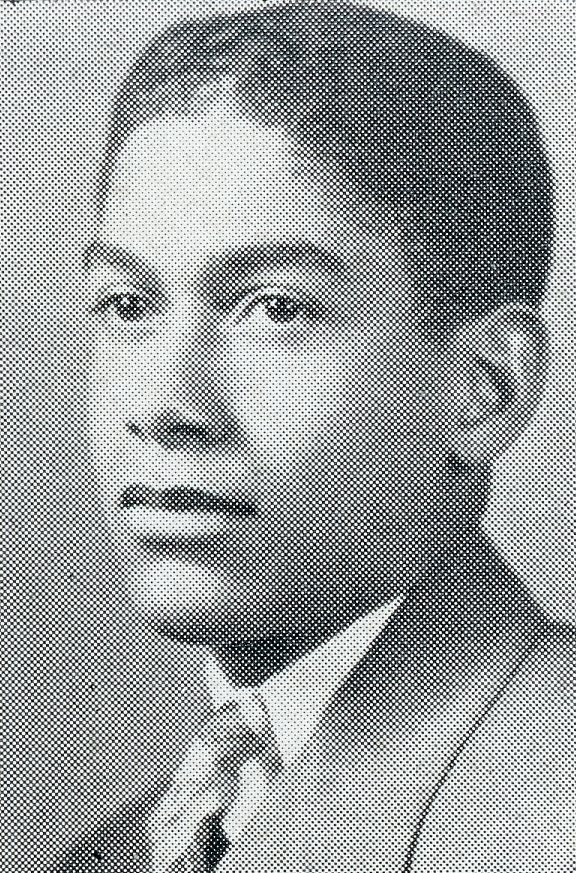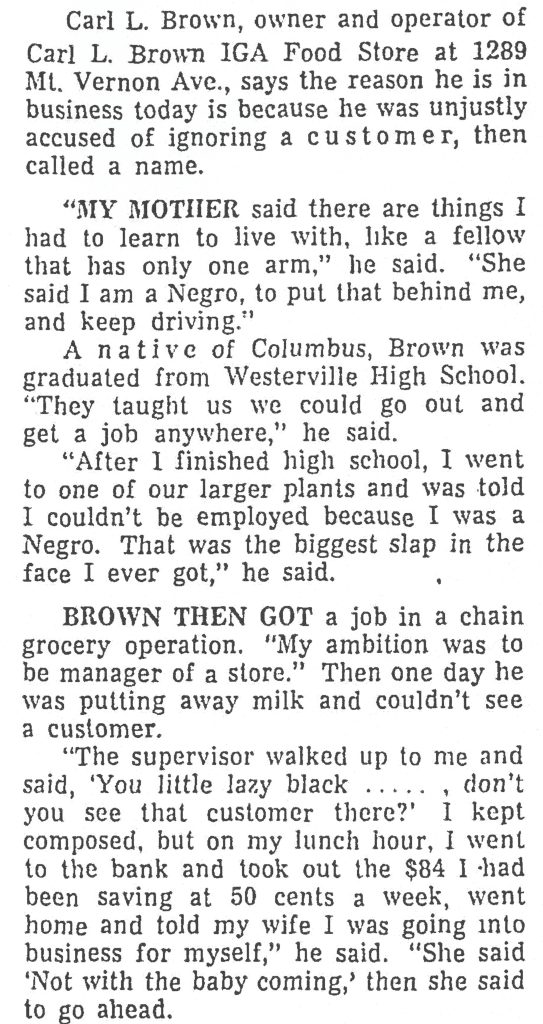Black residents faced more hurdles to employment than white residents.
Carl L. Brown, a 1934 graduate of Westerville High School, opened Columbus’ first black-owned supermarket. Brown remembered, “They taught us we could go out and get a job anywhere.” But his teachers had not been Black, and he quickly found out that he could not, in fact, just go out and get a job anywhere. “After I finished high school,” Brown continued, “I went to one of our larger plants and was told I couldn’t be employed because I was a Negro. That was the biggest slap in the face I ever got.”
He did find a job at a grocery store but decided to be his own boss after a supervisor accused him of ignoring a customer and called him a racial slur. He began selling fruits and vegetables out of a Model T pickup before renting space at a market. Brown operated stores at several Mt. Vernon Avenue locations, franchised his business, and in 1969 opened the Carl L. Brown IGA Foodliner, a fixture of the predominately Black Mt. Vernon neighborhood for many years.[1]
References
[1] Carl L. Brown Vertical File (B112), Westerville History Museum.
How to Cite This Source
Please cite this toolkit (Chicago Manual of Style) as 'Westerville History Museum, "Racism in Westerville History," Westerville Public Library, last modified January 23, 2023, https://westervillelibrary.org/racism-history.
Need a citation in a different style (such as MLA or APA)? Try this citation generator.






